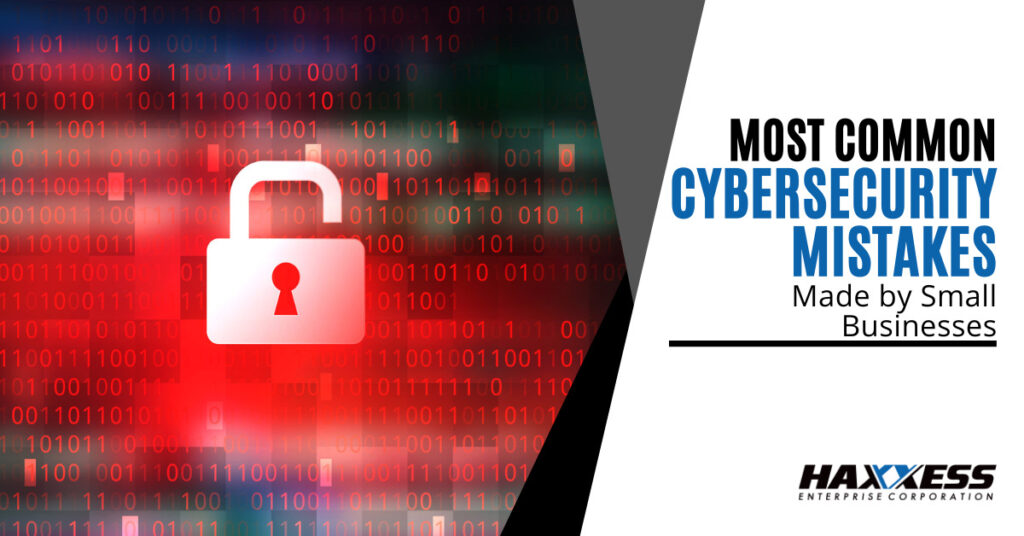
In an era where technology is deeply ingrained in business operations, cybersecurity has become a critical concern for businesses across the spectrum, including small enterprises. However, small businesses, often constrained by limited resources and expertise, can inadvertently leave themselves vulnerable to cyber threats.
This comprehensive article aims to shed light on the most prevalent cybersecurity mistakes made by small businesses and offers in-depth advice on how to evade these pitfalls.
One of the foremost blunders small businesses commit is the omission of cybersecurity training for their employees. Without proper guidance, employees may unknowingly engage in risky online behaviors, leaving the company susceptible to potential threats.
Solution: Small businesses should prioritize implementing regular cybersecurity training programs. These programs can educate employees about the latest threats, phishing scams, and best practices for online security. By nurturing a cybersecurity-aware workforce, businesses can significantly reduce the risk of human error-related breaches.
Another glaring issue is the oversight of robust password policies. Weak or easily guessable passwords can serve as a welcome mat for cybercriminals, providing them with a gateway to sensitive company data.
Solution: To rectify this, small businesses should enforce stringent password requirements. This includes mandating passwords of adequate length and complexity and implementing periodic password changes. Employing multi-factor authentication (MFA) can add an extra layer of security, rendering unauthorized access even more challenging.
Frequently, small businesses fail to keep their software and operating systems up to date. Cybercriminals often target known vulnerabilities in outdated software, as these present low-hanging fruit.
Solution: Vigilance in software updates is paramount. Regularly updating all software components, including operating systems, applications, and antivirus programs, is crucial to patching security vulnerabilities promptly. Automated patch management tools can streamline this process.
Data backups may not receive the attention they deserve. Without proper backups, small businesses risk losing critical data in the event of cyberattacks, hardware failures, or disasters.
Solution: A robust data backup and recovery strategy is indispensable. It should include regular, automated backups of critical data and the secure storage of backups offsite. Regular testing of backup restoration processes is equally crucial to ensure data integrity and availability during emergencies.
Granting employees excessive access privileges can lead to data breaches. Small businesses may not effectively manage user permissions, leading to unauthorized access to sensitive information.
Solution: To mitigate this risk, small businesses should implement the principle of least privilege (PoLP). This approach ensures that employees only have access to the information necessary for their roles. Regular reviews of user permissions are also vital to prevent privilege creep.
With mobile devices playing an increasingly central role in business operations, their security is often disregarded. Unsecured smartphones and tablets can pose significant risks.
Solution: Small businesses must enforce mobile device management (MDM) policies to secure and monitor mobile devices used for work. This includes implementing encryption, remote wipe capabilities, and ensuring devices are regularly updated with the latest security patches.
Many small businesses lack a formal incident response plan, leaving them ill-equipped to mitigate the impact of a cyberattack effectively.
Solution: Developing a comprehensive incident response plan is essential. This plan should outline specific roles and responsibilities during a security breach, including communication protocols and steps for containing and recovering from the incident. Regular drills and tabletop exercises can help ensure everyone knows their role in a crisis.
Staying informed about the latest cyber threats is paramount for small businesses. Ignorance of emerging threats can leave a company exposed.
Solution: Small businesses should allocate resources to gather threat intelligence. This could involve subscribing to cybersecurity news sources, participating in industry-specific threat-sharing groups, or leveraging threat intelligence services. With timely information, businesses can proactively adjust their defenses to counter evolving threats.
In today’s digitally connected world, small businesses must prioritize cybersecurity to protect their sensitive data and safeguard their reputation. By recognizing and addressing these common cybersecurity mistakes, small businesses can significantly reduce their vulnerability to cyberattacks.
At Haxxess, we understand the unique challenges faced by small businesses in securing their digital assets. We are dedicated to helping you strengthen your cybersecurity defenses and protect your business. Don’t leave your business’s security to chance. Contact Haxxess today for expert cybersecurity solutions tailored to your small business needs. We’re here to support you in safeguarding your digital assets and ensuring the security of your operations.